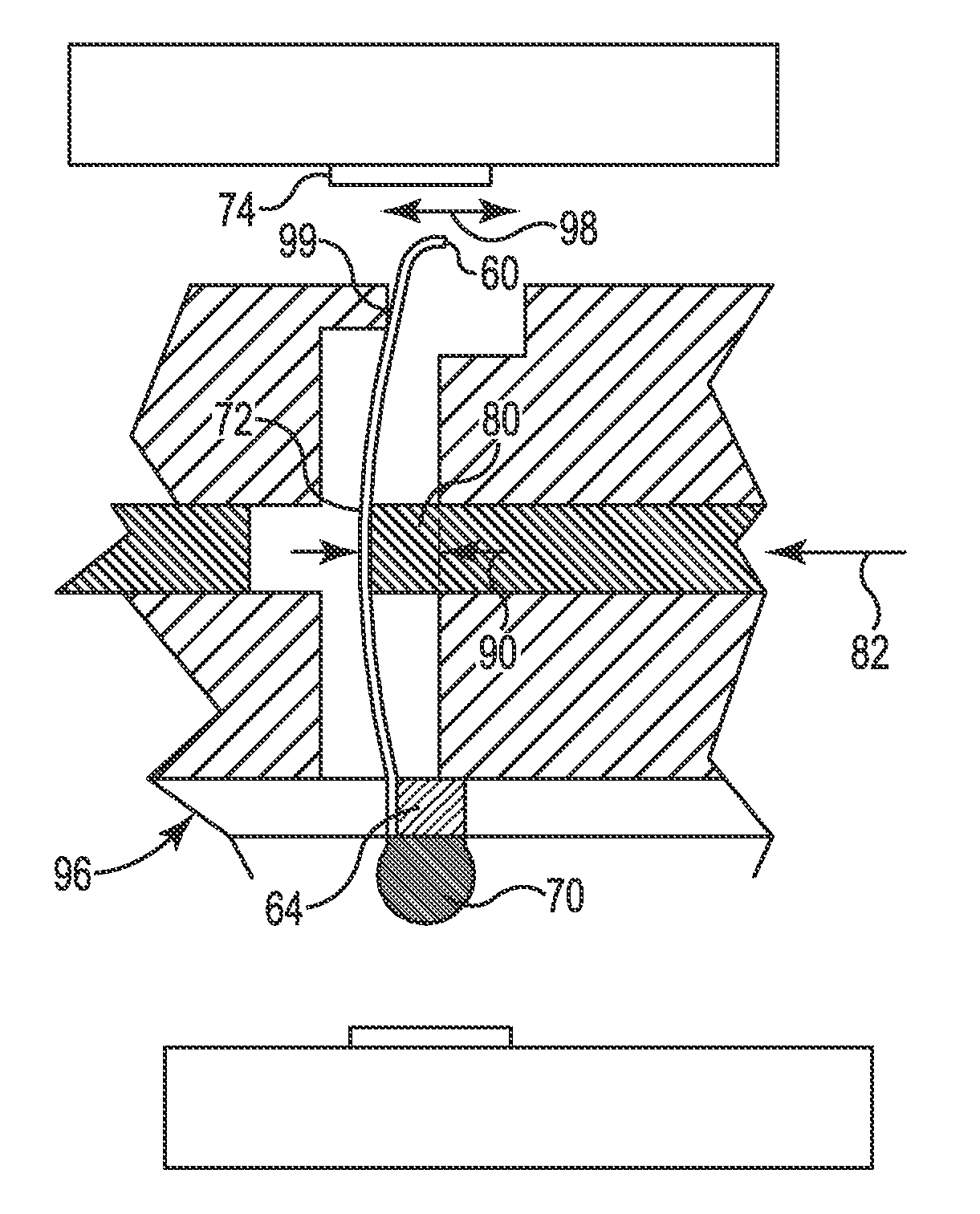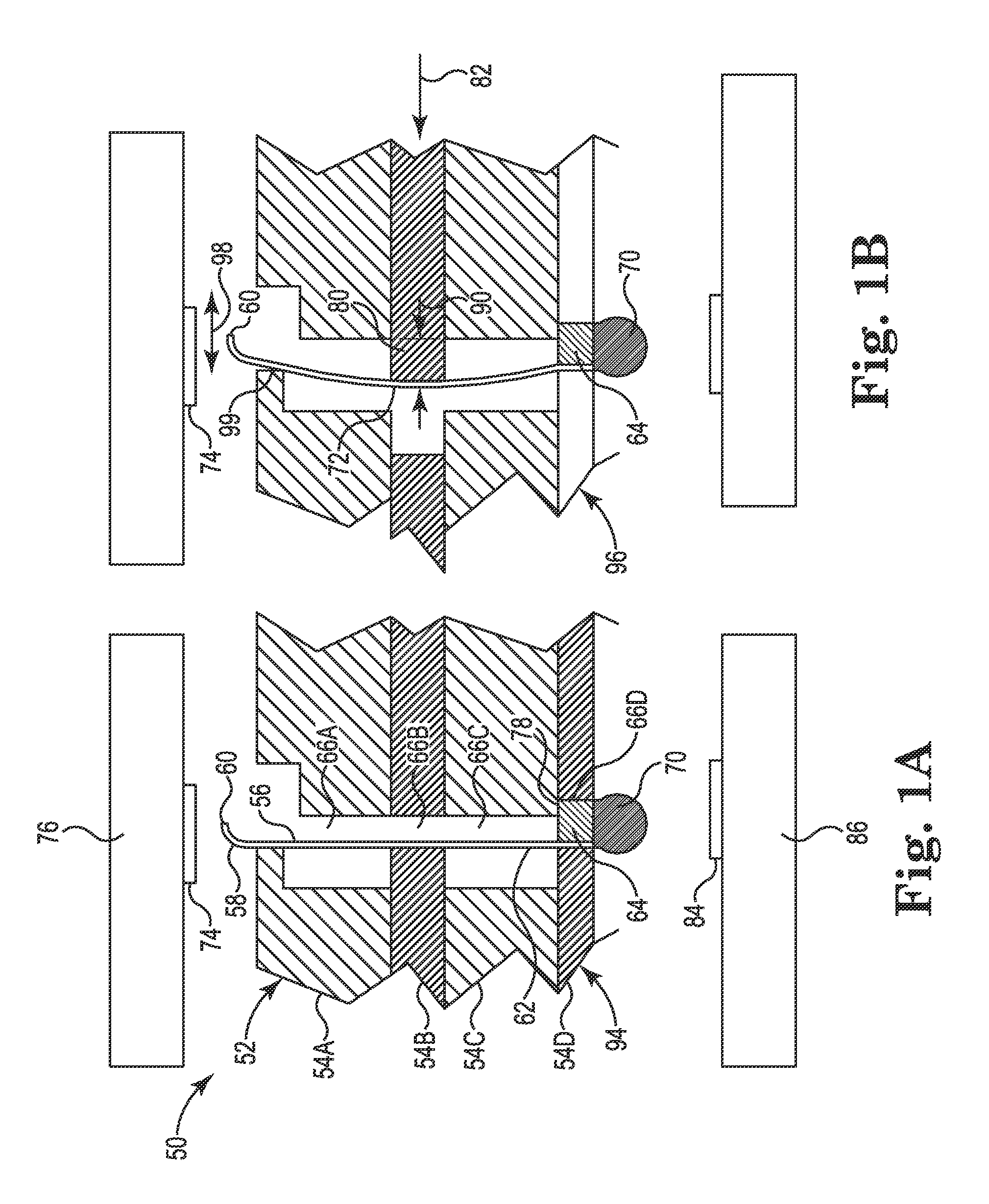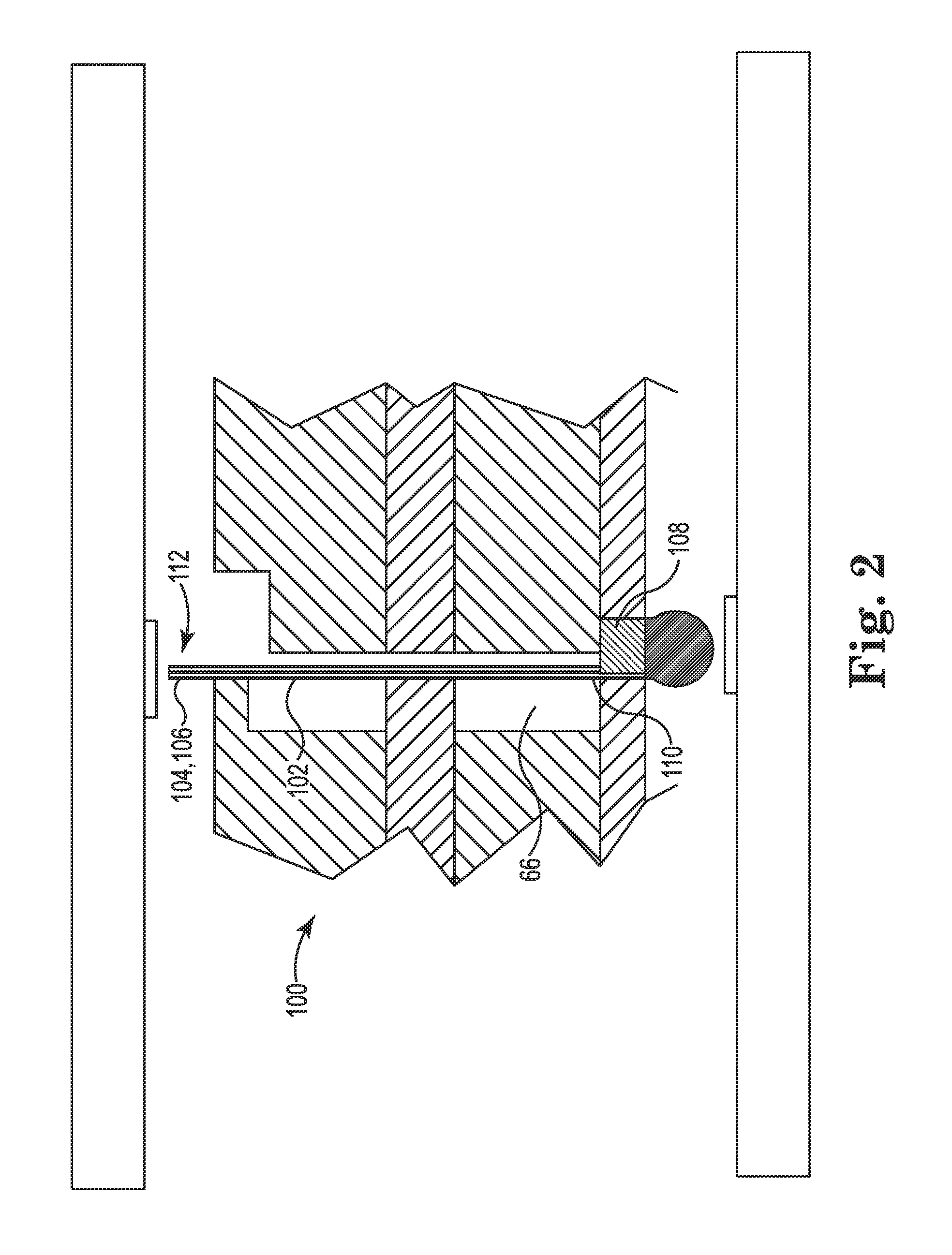Method of making an electronic interconnect
a technology of electronic interconnection and assembly method, which is applied in the direction of coupling contact members, coupling device connections, printed circuit manufacturing, etc., can solve the problems of mechanical and electrical limitations, limiting the space available for positioning springs or contact members, and reducing the available area for placing contacts. , to achieve the effect of reliable flexural properties and reducing the complexity of contact members and tooling requirements
- Summary
- Abstract
- Description
- Claims
- Application Information
AI Technical Summary
Benefits of technology
Problems solved by technology
Method used
Image
Examples
Embodiment Construction
[0029]An electrical interconnect in accordance with the present disclosure permits fine contact-to-contact spacing (pitch) on the order of less than 1.0 millimeter (1×10−3 meter), and more preferably a pitch of less than about 0.7 millimeter, and most preferably a pitch of less than about 0.4 millimeter. Such fine pitch electrical interconnects are especially useful for communications, wireless, and memory devices. The disclosed low cost, high signal performance electrical interconnects, which have low profiles and can be soldered to the system PC board, are particularly useful for desktop and mobile PC applications.
[0030]The disclosed electrical interconnects permit IC devices to be installed and uninstalled without the need to reflow solder. The solder-free electrical connection of the IC devices is environmentally friendly.
[0031]FIG. 1A is a side cross-sectional view of a portion of an electrical interconnect 50 in accordance with an embodiment of the present disclosure. Substrat...
PUM
| Property | Measurement | Unit |
|---|---|---|
| aspect ratio | aaaaa | aaaaa |
| aspect ratio | aaaaa | aaaaa |
| conductive | aaaaa | aaaaa |
Abstract
Description
Claims
Application Information
 Login to View More
Login to View More - R&D
- Intellectual Property
- Life Sciences
- Materials
- Tech Scout
- Unparalleled Data Quality
- Higher Quality Content
- 60% Fewer Hallucinations
Browse by: Latest US Patents, China's latest patents, Technical Efficacy Thesaurus, Application Domain, Technology Topic, Popular Technical Reports.
© 2025 PatSnap. All rights reserved.Legal|Privacy policy|Modern Slavery Act Transparency Statement|Sitemap|About US| Contact US: help@patsnap.com



